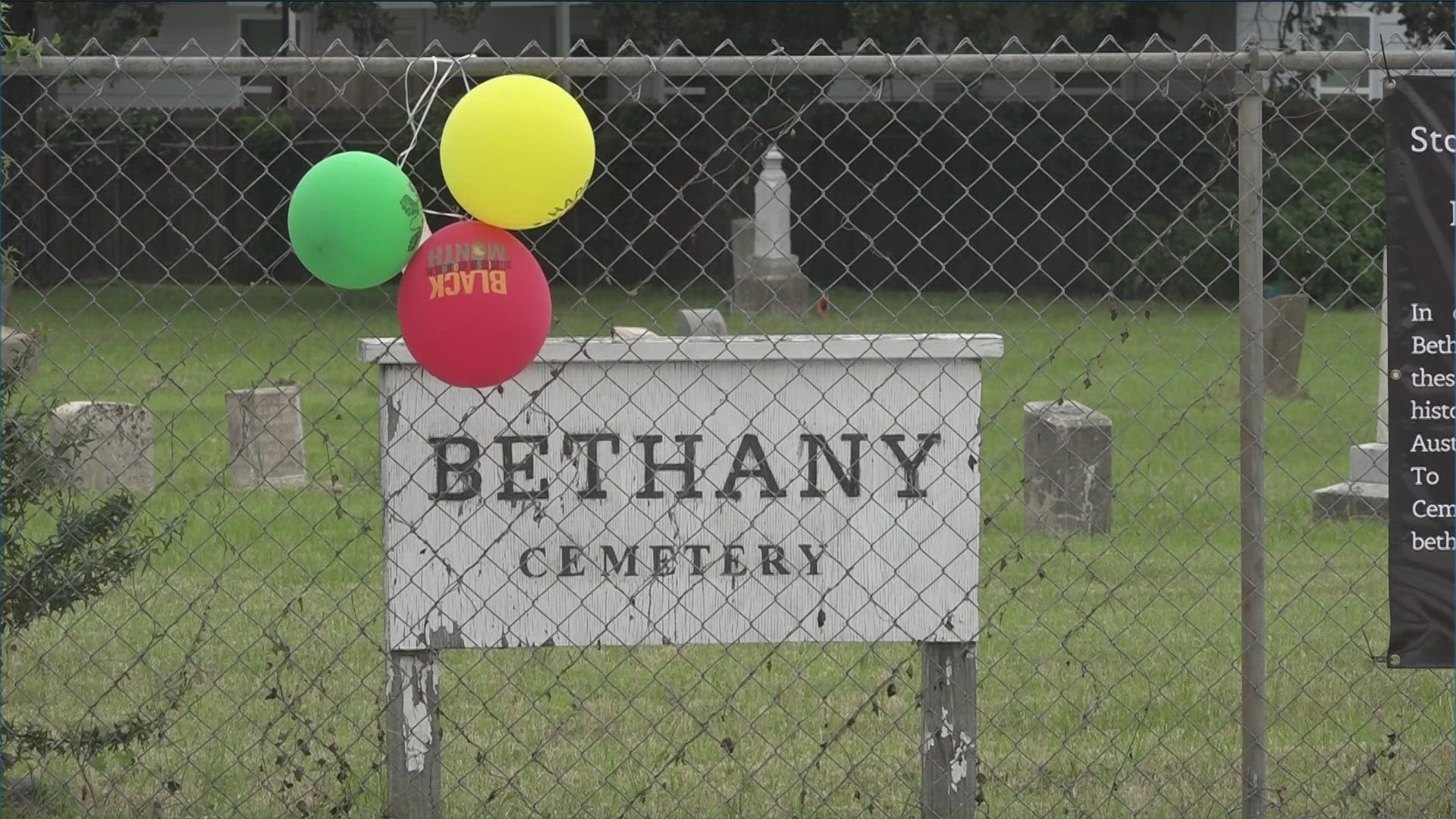AUSTIN, Texas — The Bethany Cemetery, Austin’s first Black cemetery, held a celebration to remember and honor ancestors ahead of the Juneteenth holiday. For some, the celebration allowed them to find more relatives they didn’t know were there.
“We thought that most of our ancestors were buried at Evergreen, and so to find some over here and then being the first Black cemetery after emancipation, has just been amazing,” Ka’Sheda Bonner-Bey said.
Bonner-Bey was born and raised in East Austin. Recently, she’s been getting more into the genealogy of her family. On Saturday, she was thrilled to find the memorials of her great-grandfather, great-grandmother and her third great-grandmother.
“Once we remember, the history is less likely to be lost through time,” Bonner-Bey said.
That’s exactly what Sue Spears, president of the Bethany Cemetery Association, hopes people remember when they visit. She’s been working to preserve the cemetery for years.
“It brings about cohesiveness, it brings back pride to the community and it also lets the community know that the people that are buried here actually build the East Austin community,” Spears said.
Many buried at the Bethany Cemetery were some of the first residents of East Austin. Spears also said many of them lived through enslavement and lived in Austin during the first Juneteenth holiday.
On Saturday, Spears threw the first celebration at the cemetery to remember and honor their ancestors ahead of Juneteenth.
“I just hope that the community learns more about the stories that lay here on these grounds,” Spears said.
Though she doesn’t have any relatives specifically buried at the cemetery, she feels a deep tie to it.
“I’m a native Austinite, born and raised here, and so I have a connection to the souls that are here,” Spears said.
Last year, parts of the cemetery were at risk from a new multiuse development project that was going to be under construction on Springdale Road. Spears has been working to make sure the land next to the cemetery that was going to be developed would be treated with respect.
“There’s very possibly some graves that are located on their property that they don’t know about,” Spears said.
But Spears told KVUE the city and developers have been cooperating. She said the city of Austin has entered into a restrictive covenant, meaning the Travis County Historical Commission and the Texas Historical Commission will be present for construction. Spears also said the developers will be paying for archeologists to be on site to ensure they’re not disturbing any graves that they’re not aware of.

